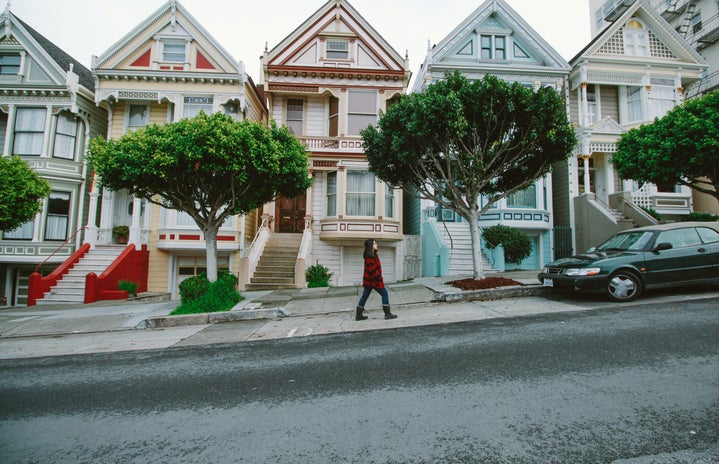Last month, my family and I were displaced from our house. We had been renting a home in Portsmouth for the past four years. Unfortunately, the owner decided to sell, so we, the tenants, were instructed to vacate by the end of the month. With no other houses available for rent in our budget, my family and I had no choice but to downgrade from a four-bedroom, two-bathroom house to a two-bedroom, one-bathroom apartment. We are a family of five.
Sudden, involuntary moves like this one are far from new to me. U-Haul trucks and packed bags were defining characteristics of my childhood. By 16, I had lived in multiple homeless shelters and transitional housing centers. I had stayed with extended family members and slept on couches belonging to friends of my mother. I had been to three elementary schools, four middle schools, and two high schools across my home state of Indiana, and Virginia. I was the perpetual new girl, envying my friends and classmates who could talk at length about growing up in one place. I wished I could share the feeling of having been in school with the same people since we were children, but moving was inevitable for my family. We were low income, constantly facing housing insecurity and all of its accompanying challenges.
The idea of a permanent home was a near mythological concept to me.
Homelessness in America is an ongoing issue. As reported by the U.S. Department of Housing and Urban Development (HUD), in 2020, 580,466 people were impacted by homelessness, a figure that has risen 2.2 percent from 2019. The absence of stable housing is a daily struggle for those affected, and the impacts are not only physical but psychological as well. My family’s seemingly never-ending cycle of abrupt moving brought on a heightened sense of anxiety. Even when we were fortunate enough to live in a house or apartment rather than a shelter or group home, I still felt uneasy; It was as if I was sitting on the edge of a precipice, always wondering when we would have to leave again.
What followed this constant loss of home was a loss of self. Oftentimes, my entire existence felt momentary—I was simply someone to be experienced in passing. Sometimes, I tried to take advantage of this. I remember planning personal reinventions around my moves, trying on new faces in new surroundings. I found that as my environment remained unstable, so did my budding identity.
Establishing a true sense of self was difficult without ever having established a true sense of home.
I’ve always defined home solely by its address. As I age further into adulthood, though, this definition has expanded for me. Indeed, a home is a residence, and housing insecurity and homelessness cannot be solved by a mere change in perception. Everyone deserves a warm, safe place to sleep at night for themselves and their family. Stable housing is crucial. That said, I have begun to view the idea of “home” through multiple lenses.
I have always been a writer. Throughout my life, writing has been a constant space for self-expression, whether that be in journals, poetry, or fictional works. Writing is a comfort, a safe place to return to in the most overwhelming moments of my life. In this sense, writing is home for me, and through it, a significant part of my identity has lasted through every change in residence. This is the fluidity of home.
Home does not exist in one form or take on one shape. Home can be found in work that you love, in the people that bring you peace. It can be a tangible token you carry with you or something purely conceptual. Home can exist within so many different mediums, and I’m learning to find comfort in its flexibility. Through however many more houses, apartments or shelters I may live in during my life, home is and has always been, what remains with me.


